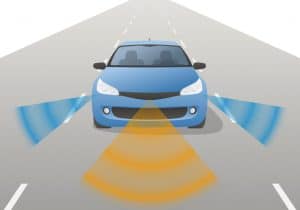Consumer advocates worry that this law could lead to increased crashes.
Recently, the U.S. House of Representatives united to pass a bill that will increase the number of self-driving cars on American roads — if the bill is approved by the Senate and signed into law by the President. The Safely Ensuring Lives Future Deployment and Research in Vehicle Evolution Act, known as the “SELF DRIVE” Act, was passed with strong support in the House. If it passes the Senate, it would become the first national law for driverless vehicles in the United States.
The goal of the SELF DRIVE Act is to regulate self-driving cars and to increase the number of driverless vehicles currently on the road. As things currently stand, if an automaker wants to test self-driving technology, it is required to apply for an exemption from the National Highway and Traffic Safety Administration’s (NHTSA) motor vehicle safety standards. Right now, only 2,500 exemptions are granted each year. The SELF DRIVE Act would increase that number to 25,000 per year, and then up to 100,000 per year within three years.
While industry leaders such as Google, Uber, Ford, Lyft and Volvo believe that this act will increase safety on American roadways and decrease congestion, others fear that rushing self-driving cars into production and onto our highways could lead to increased accidents. There have already been a number of crashes due to driverless cars, due to user error and other issues, such as the cars’ sensors being unable to detect an object because of bright sunshine. If more self-driving cars are permitted on American roadways without being subjected to rigorous safety standards, then the potential for accidents may also be increased — and there may be significant questions about who is actually responsible for the crashes that could cause devastating injuries. As experienced personal injury attorneys, we know that when self-driving cars are involved, the legal question of who is actually responsible for an accident can be complex — and it is often the victim who suffers as a result.
The SELF DRIVE Act does require that companies prove that before a self-driving car is put on the road, it must be at least as safe as a vehicle that is driven by a human before it is granted an exemption from the NHTSA regulations. Companies that are granted exemptions must also report any crashes or incidents involving their vehicles, and list their vehicles in a public database.
While self-driving cars may be the wave of the future, the widespread use of driverless vehicles raise serious concerns for anyone who may be injured by a vehicle. This may include other drivers, pedestrians, and joggers. Technology can be incredibly beneficial, but only if we put limits in place to ensure that people are protected — especially when it comes to vehicles and the potential for deadly or life-threatening car accidents.
If you have been involved in a car accident with a driverless or any other type of vehicle, the skilled personal injury attorneys of PLBHM can help. With more than 50 years of experience helping our clients, we can help you get the results that you deserve for your injuries. Contact us today at (800) 435-7542 or info@plblaw.com to schedule a free initial consultation and learn more about how we can help you.

